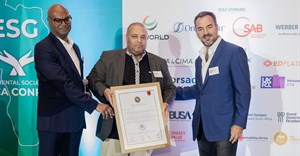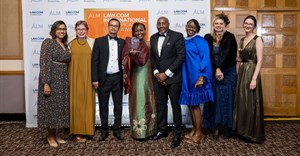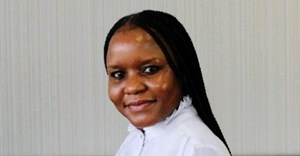Trending
Elections 2024
Jobs
- HR Administrator George
- Model Booker Cape Town
- Sales Agent Cape Town
- Payroll - Senior Administrator Johannesburg
- Payroll Accountant George
- Contract Assessors Remote
- Records Management Administrator Pretoria
- Onboarding Manager Cape Town
- Recruitment Specialist - 360 George
- Office Administrator / Receptionist George
Addressing the challenges of youth employment with Cas Coovadia

Coovadia believes the top three challenges connecting youth to economic opportunities are:
- Growth: If we want to connect youth to opportunities, we, as businesses and the economy, have to grow. Without growth, we cannot create jobs.
- Collaboration: We need collaboration among business, government and academia to ensure the young people graduating from universities and technical colleges meet the requirements of a new economy. As we move toward a digital economy, we need the appropriate skills to serve that economy.
- Sustainable economic ecosystem: We need a multifaceted approach - it's not just about putting young people into jobs, we need to create an environment to encourage startups and grow SMMEs. This will enable a sustainable cycle whereby those with entrepreneurial flair can grow their own business and create further jobs.
Yes initiative
"If you compare the number of jobs that Yes has created since its inception to the challenges we have, it's a drop in the ocean," Coovadia admits. "I'm of the view that at the time we launched Yes, the sort of targets [of a million jobs a year] we set for it were quite honestly unrealistic."
Coovadia explains that it wasn't through lack of effort; there just wasn't the environment to do so.
Unfortunately, the programme - like so many businesses around the world - experienced a setback during the pandemic, but it still managed to achieve a record 25,300 jobs created for the financial year ending 2022. It is estimated that 30-35% of those turn into permanent work opportunities.
"The trend seems to be going up, even though the economy is still pretty weak, but there is, I think, an appreciation amongst corporates that the more young people we train, the better platform we are developing for skills in a growing economy."
Addressing the experience trap
Corporates are beginning to realise that breaking the experience trap is a business imperative. This is one of the issues Yes helps to address by placing youth with corporates and giving them the experience and understanding of working within that environment.
However, says Coovadia, "We need different types of skills so it's not just about the experience you may be able to develop in the current economy; we need to develop those skills for a new economy." Unfortunately, we have very few people with the necessary experience for the new economy, so that experience will need to be developed over time. Coovadia believes we'll be able to achieve this "not by not giving people jobs, but by giving people jobs and having the necessary support system in place to enable them to actually grow in those jobs - lifelong learning mechanisms so that people grow and develop experience in their jobs".
Incentives
The private sector had to be incentivised to make the shift toward hiring young people who may not have the required level of skill needed to show immediate reward and productivity.
The critical and significant incentive for those participating in the Yes programme has been BEE points, says Coovadia, which increases the opportunity of doing business with government as well as doing business in a broader, more transformative way.
The softer incentive for companies is the opportunity to develop the skills they will need once the economy starts picking up, as government and business organisations work toward creating an environment for investment.
One of the mechanisms enabled by the Yes programme works as a way for businesses to 'give back' and do their part to assist NGOs. Any youths that corporates pay for but are unable to accommodate in the workplace for sheer volume are then placed with NGOs and community-based organisations.
However, Coovadia says that this needs to be a virtuous circle between business, government and what Yes is doing in order to make this sustainable in the long term.
The development of the Yes programme will shift in order to meet the needs of the type of business that is beginning to present itself as the focus falls on meeting the UN Sustainable Development Goals.
Way forward
Coovadia reiterates that the only way to grow jobs is to grow business.
"We have identified critical interventions that need to be made to actually get investment and growth going," he assures.
Coovadia believes there is agreement as to the root cause of the problems - our education system needs work, as do our training colleges and a number of our universities - all of which sit in the public sector.
The real question, he asks, is do we have the commitment and the sense of urgency in the public sector to tackle these issues? This includes holding people accountable for mismanagement and ensure there are consequences for lack of performance, as well as ensuring we root out the corruption undermining it all.
"These are all the big issues that if we don't tackle - and don't tackle with the sense of urgency that's needed - we're not going to deal with the underlying issues," he states.
Over the coming years, Coovadia says projected figures for job creation through the Yes programme could reach 30,000 to 35,000 jobs per year. If the country can achieve further economic growth, he is hopeful that that figure will continue to increase.
View the full conversation between Seckam and Coovadia here.



















